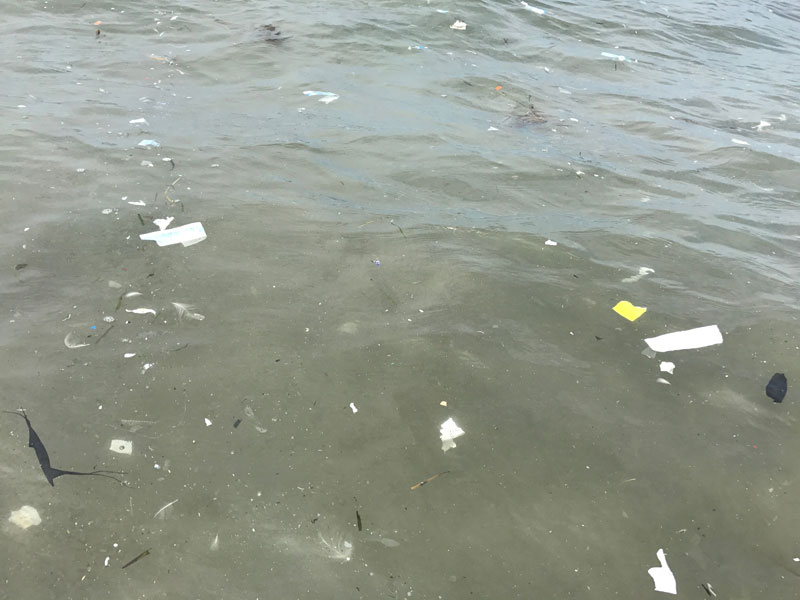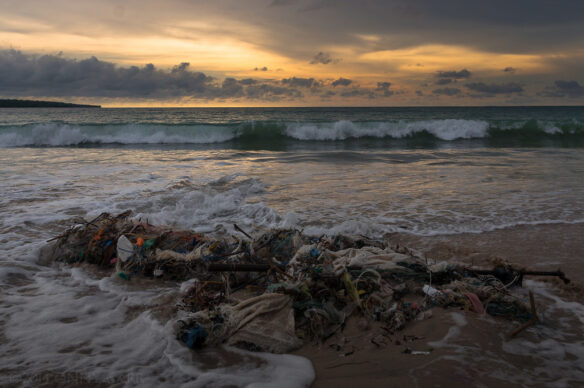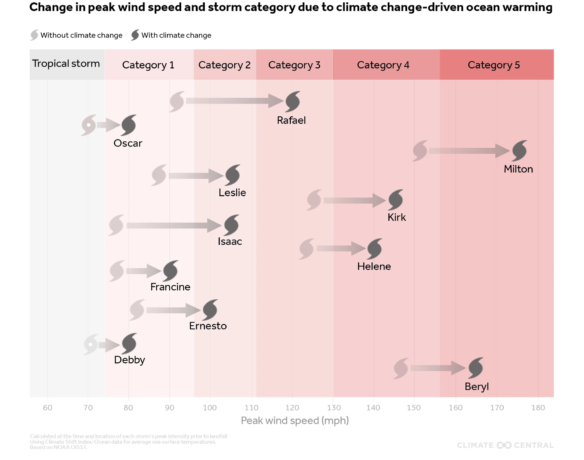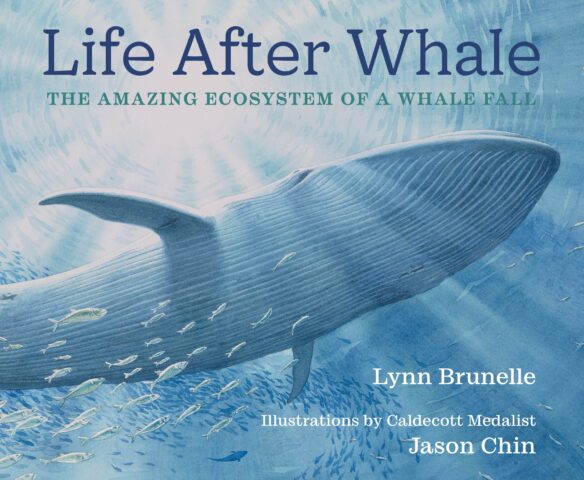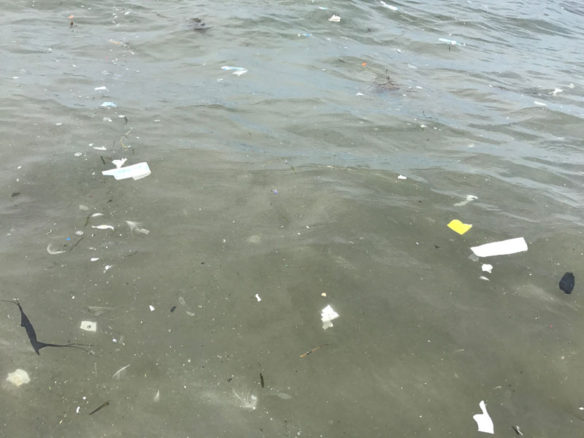
“Plastic is versatile, lightweight, flexible, moisture resistant, strong, and relatively inexpensive. Those are the attractive qualities that lead us, around the world, to such a voracious appetite and over-consumption of plastic goods. However, durable and very slow to degrade, plastic materials that are used in the production of so many products all, ultimately, become waste with staying power. Our tremendous attraction to plastic, coupled with an undeniable behavioral propensity of increasingly over-consuming, discarding, littering and thus polluting, has become a combination of lethal nature…”
Captions and Photo: © SAF — Coastal Care
Excerpts;
Researchers have found that several greenhouse gases are emitted as common plastics degrade in the environment. Their study reports the unexpected discovery of the universal production of greenhouse gases methane and ethylene by the most common plastics when exposed to sunlight…
Read Full Article, Science Daily (08-01-2018)
Original Study: “Production of methane and ethylene from plastic in the environment”, Plos One (08-01-2018)
Mass production of plastics started nearly 70 years ago and the production rate is expected to double over the next two decades. While serving many applications because of their durability, stability and low cost, plastics have deleterious effects on the environment. Plastic is known to release a variety of chemicals during degradation, which has a negative impact on biota. Here, we show that the most commonly used plastics produce two greenhouse gases, methane and ethylene, when exposed to ambient solar radiation…
Plastic pollution: When The Mermaids Cry: The Great Plastic Tide, Coastal Care – ©2009
Washed out on our coasts in obvious and clearly visible form, the plastic pollution spectacle blatantly unveiling on our beaches is only the prelude of the greater story that unfolded further away in the world’s oceans, yet mostly originating from where we stand: the land…
New UN report finds marine debris harming more than 800 species, costing countries millions; United Nations (12-05-2016)
Marine debris is negatively affecting more than 800 animal species and causing serious losses to many countries’ economies, according to a United Nations report launched December 5th, 2016…
More than 8. 3 billion tons of plastics made: Most has now been discarded; Science Daily (07-19-2017)
Humans have created 8.3 billion metric tons of plastics since large-scale production of the synthetic materials began in the early 1950s, and most of it now resides in landfills or the natural environment, according to a study.
Biodegradable plastic ‘false solution’ for ocean waste problem; Guardian UK (05-23-2016)
Only 14% of plastics are recycled – can tech innovation tackle the rest? Guardian UK (02-22-2017)
Billions of pounds of plastic waste are littering the world’s oceans. Now, an organic chemist and a sailboat captain report that they are developing a process to reuse certain plastics, transforming them from worthless trash into a valuable diesel fuel with a small mobile reactor that could operate on land or at sea…
What are businesses doing to turn off the plastic tap? UNEP (06-28-2018)
More Recycling Won’t Solve Plastic Pollution; Scientific American (07-06-2018)
Encouraging individuals to recycle more will never solve the problem of a massive production of single-use plastic that should have been avoided in the first place…
To clean up ocean plastics, increase focus on coasts, Science Daily (01-19-2016)
The most efficient way to clean up ocean plastics and avoid harming ecosystems is to place plastic collectors near coasts, according to a new study…
You Can Help Turn the Tide on Plastic. Here’s How; The National Geographic (05-26-2018)
Do these six pain-free things, and you’ll help reduce the impact plastic is having on oceans and other waterways around the world…
Loving the Ocean Starts at Home, National Geographic (09-08-2016)

